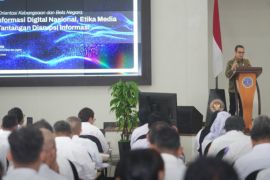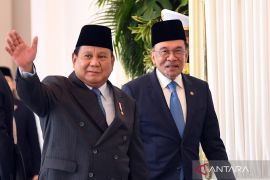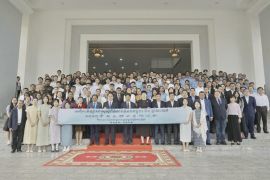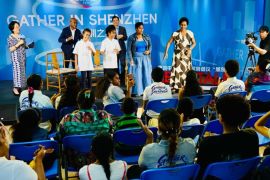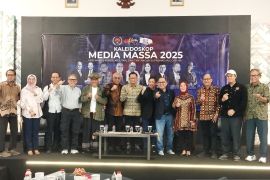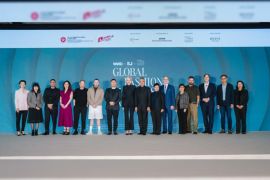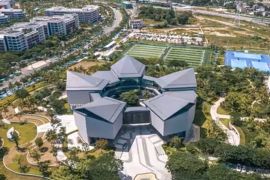Through the media, the public not only gets to learn about the candidates and their vision and mission in greater depth, but also find out the latest state of the democratic process in other regions.
In addition to prioritizing transparency in news that educates the public, the media is also required to tackle hoax news, which has the potential to cause chaos in society.
In a democratic setup, the success of elections hinges on the role of the media in conveying facts and accurate information.
The Press Council, as an independent institution tasked with protecting press freedom and improving the quality of the national press in Indonesia, has asked the mass media to work professionally when covering the simultaneous regional elections this year.
Chairperson of the Press Council Partnership and Organizational Infrastructure Commission, Asep Setiawan, has urged journalists to maintain professionalism and neutrality in covering the election/regional elections given the importance of the media's role in overseeing a clean democratic process.
According to Setiawan, journalists who are members of a particular candidate's winning team must resign from the editorial team as a form of commitment to press independence.
He emphasized that media outlets, especially press companies with political affiliations, should not be used to further the political interests of their owners.
Setiawan also reiterated the importance of balanced, neutral coverage, and avoiding news that leads to gender bias or reporting on a candidate's personal life.
"The focus of coverage must be directed at the candidate's contribution, achievements, and vision in developing the region," he said.
Chairperson of the Education, Training, and Professional Development Commission of the Press Council, Paulus Tri Agung Kristanto, said that the council is improving the quality of media coverage to ensure a quality and dignified 2024 Pilkada by strengthening journalistic ethics, so that journalists can produce enlightening news to maintain a healthy public narrative.
"Journalists must uphold the principle of neutrality in reporting, (coverage must be) balanced, and, of course, independent," he added.
Kristanto explained that the role of the press in educating by providing proportional information on the regional elections is very important so that the public can be invited to play a role in supervising the stages of election preparation.
According to him, the press can also help boost voter participation and realize quality democracy in regional elections.
Kristanto asked journalists to think critically by examining the track records of the candidates, exploring regional potential, criticizing the role and function of the election organizers, as well as examining data on prospective voters.
"The news produced can be in the form of dissecting political promises and highlighting programs of the candidate," he said.
Media's role and balance
Senior journalist and chairperson of the Indonesia Forum of Women Journalists (FJPI), Uni Lubis, noted that the media tried to cover the 2024 presidential election (particularly in February) objectively, namely by giving all candidates equal opportunity.
"Is the media independent?" she asked.
According to her, this is a problem because the media in Indonesia is controlled by business conglomerates with political interests, and there are even media outlets owned by figures or leaders of political parties.
Furthermore, Lubis also questioned the balance in the media's coverage. According to her, maintaining objectivity, such as in the angle of reporting and the number of news items, is difficult.
She explained that being balanced is a big challenge, especially when the media business is facing difficult times, even to the point of having to lay off journalists.
"The media is easily co-opted by the interests of advertisers, including political parties or presidential candidates," she said.
She added that social media has a big influence, especially on young people.
"Especially on the TikTok platform. The proof is that the Prabowo Subianto-Gibran Rakabuming Raka camp was chosen by more than 50 percent of young voters who were fascinated by short videos and gemoy dances."
Meanwhile, a newscaster and reporter with a private news agency in Jakarta, Ramaditya Domas H., also known as Rama, said he believes that the media has a very important role in enlightening the public in a political year with multiple election agendas.
"With the many hoaxes that quickly emerge along with the openness of information and technological advances, of course, the existence of this media was able to filter and reject information that is not in accordance with the facts," he added.
According to Rama, the balanced reporting of news is a problem in "each kitchen" because there must be a factor of interest in each media that is ridden with political interests in particular.
Furthermore, he noted that social media has a huge influence because most voters are young people who are social media literate.
"It was acknowledged that all debates on the timeline of each candidate are also always high. So, social media also has a big influence on voters in determining their choice in the election." he said.
Related news: Kominfo cooperates with social media platforms to fight hoaxes
Related news: Kominfo takes down 1,971 election-related hoaxes on social media
Editor: Azis Kurmala
Copyright © ANTARA 2024

